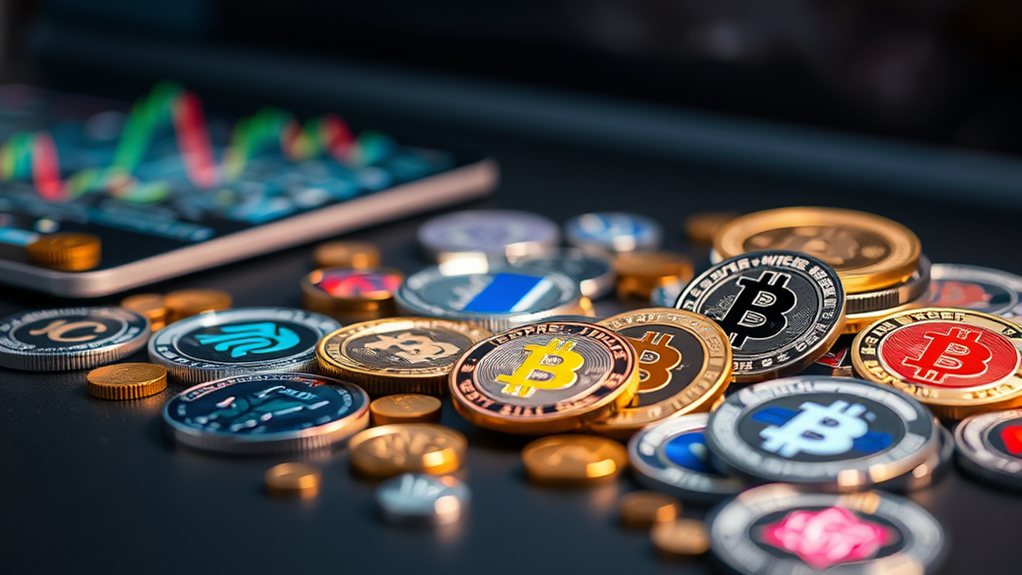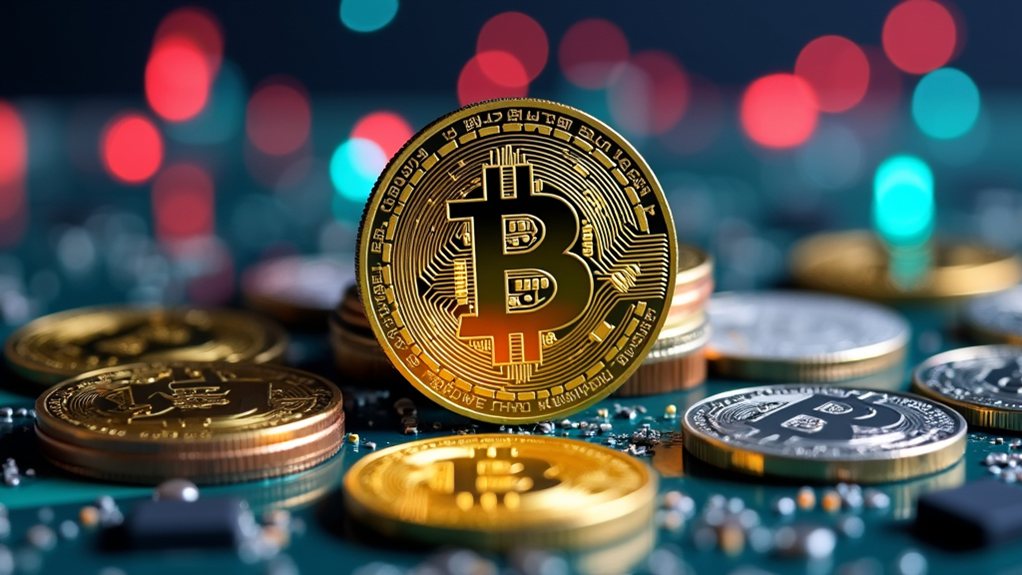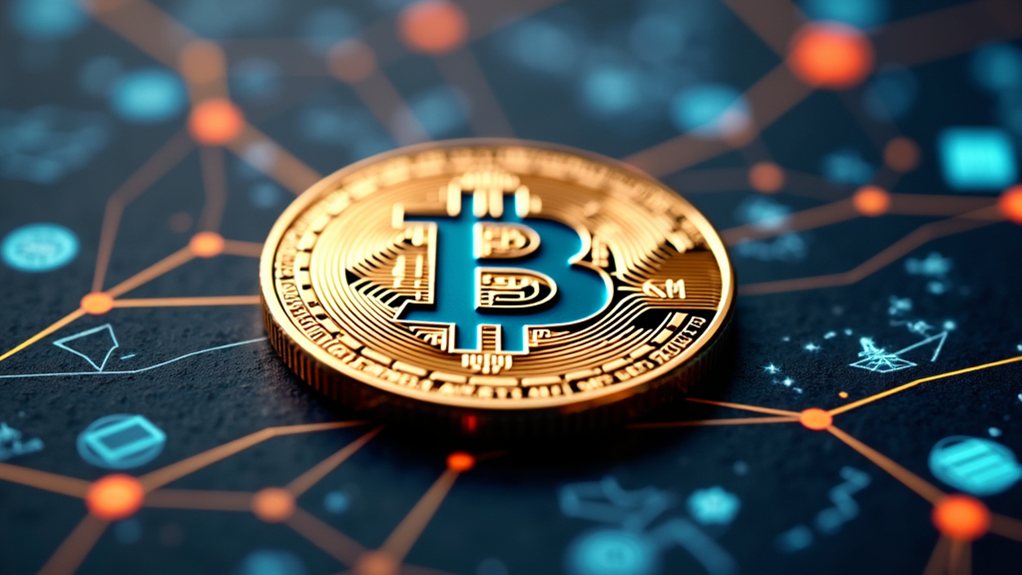A token is a representation that stands for something else across various contexts. In programming, tokens are building blocks of code. Network systems use them to control data transmission. Cryptocurrencies employ tokens as digital assets on blockchain platforms. In everyday life, tokens appear as casino chips, gift cards, and security devices. These versatile objects simplify complex systems and facilitate exchanges in both digital and physical worlds.

Versatility defines a token, an object that stands for something else across multiple fields. Tokens appear in programming, cybersecurity, networking, cryptocurrency, and even as physical objects. In each context, a token serves as a representation or placeholder with specific functions and purposes. They're fundamental components that help systems operate smoothly and securely.
Tokens: universal placeholders that bridge digital and physical worlds through representation, security, and functionality.
In computer programming, tokens form the building blocks of code. They can't be divided further in source code and fall into five categories: constants, identifiers, operators, reserved words, and separators. Compilers begin their analysis with a process called tokenization, breaking down code into these essential units. Source code creation relies heavily on tokens for applications across desktop and mobile environments. Syntax highlighters use token identification to display code in different colors for better readability.
Network environments use tokens differently. In token ring networks, a token prevents data collisions by allowing only the computer holding the digital token to transmit information. The token circulates in a logical ring topology, giving each connected device a turn to send data. When a device receives the token, it can remove messages and reset it for subsequent use by other devices. While this technology has largely been replaced by Ethernet, it was once common in local area networks.
The cryptocurrency world has embraced tokens as digital assets on blockchain platforms. These tokens represent value and are stored in digital wallets. Users can exchange them for traditional currencies or use them directly with businesses that accept cryptocurrency payments. They form the foundation for many blockchain applications and represent various forms of value. Unlike coins which operate on independent blockchains, tokens are built on existing networks like Ethereum, offering functionalities beyond just currency.
Security tokens provide an additional layer of protection beyond passwords. These physical or digital devices enable two-factor authentication, requiring both something you know (password) and something you have (the token). Many businesses use RFID smart cards as security tokens for controlling access to buildings or systems. This approach notably improves security compared to passwords alone.
Tokens also appear in everyday life. Casino chips are tokens representing money in gaming establishments. Railways use tokens for track authorization in some signaling systems. In Christian weddings, arrhae serve as ceremonial tokens. Gift cards and vouchers function as tokens redeemable for products or services.
The concept extends to abstract contexts too. In logic, linguistics, and philosophy, the type-token distinction separates general categories from specific instances. For example, the word "dog" as a concept versus a specific instance of that word.
Whatever the context, tokens simplify complex systems by providing manageable representations. They enable secure transactions, organize information, control access, and facilitate exchanges. Their flexibility and utility explain why tokens appear in so many different fields and applications.
Frequently Asked Questions
How Are Tokens Different From Cryptocurrencies?
Tokens differ from cryptocurrencies in several key ways.
Cryptocurrencies have their own blockchains, while tokens are built on existing ones. Bitcoin and Ethereum are native cryptocurrencies, but tokens like those using ERC-20 standards rely on another blockchain's infrastructure.
Cryptocurrencies typically function as digital money, while tokens can represent various assets, voting rights, or rewards within specific platforms.
Tokens are created through smart contracts rather than mining or minting.
Can Tokens Be Converted Back to Fiat Currency?
Yes, tokens can be converted to fiat currency.
This usually happens through cryptocurrency exchanges where users first exchange tokens for major cryptocurrencies like Bitcoin. They then convert these cryptocurrencies to dollars, euros, or other fiat currencies.
The process typically requires account verification, paying various fees, and following regulatory requirements.
Alternative methods include peer-to-peer platforms, crypto ATMs, and crypto debit cards for direct spending.
What Are the Risks Associated With Investing in Tokens?
Investing in tokens comes with several key risks.
Prices can swing wildly, sometimes dropping by over 90%. Regulations are unclear, with different rules in different countries.
Hackers frequently target token systems, and there's no insurance if funds are stolen.
Many token projects fail completely, and scams are common.
Technical glitches can lead to permanent loss of tokens if private keys are lost.
How Are Token Values Determined in the Market?
Token values are determined by supply and demand forces in the market. Limited supply often drives prices up, while demand comes from adoption rates and public perception.
Utility plays a key role, as tokens with more uses tend to be valued higher. Market sentiment, including regulatory news and social media buzz, affects prices.
Trading dynamics, such as exchange listings and volume, also impact a token's market value.
Are Tokens Regulated by Government Financial Authorities?
Yes, tokens are regulated by government financial authorities.
Different agencies oversee tokens based on their classification. The SEC regulates tokens considered securities, while the CFTC oversees those treated as commodities. FinCEN applies money transmission rules, and the IRS taxes tokens as property.
Regulations vary widely between countries. Companies dealing with tokens must follow AML/KYC rules and often need licenses to operate legally.














